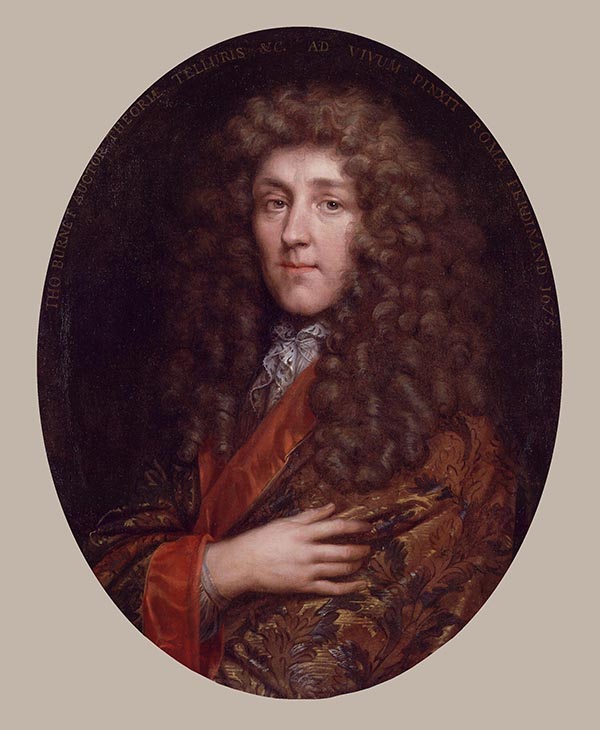Thomas Burnet (c. 1635 - September 27, 1715) was an English theologian and philosopher, particularly in the field of cosmogony, that is, the study of the origin of the universe (in this case from a Christian perspective). Burnet was born in Croft near Darlington in 1635 and attended Northallerton Grammar School, where he studied under Thomas Smelt. In 1651, he began studies at Cambridge, being a member of Clare College before shifting to Christ's College to follow the Master of Clare College, Ralph Cudworth, when he moved to Christ's College. He also studied under John Tillotson, the Archbishop of Canterbury, while at Cambridge. By 1658, he had become a fellow of Christ's College and earned a Master's degree, and in 1667, he was made a proctor of the college. Burnet worked for several noble British families, including as a tutor to Lord Ossory, grandson of James Butler, 1st Duke of Ormonde, who aided his appointment in 1685 as Master of the Charterhouse, an educational and charitable institution in London, a position he held until his death in 1715. In the wake of the Glorious Revolution, Burnet also served as chaplain in ordinary and Clerk of the Closet to William III (William of Orange). Burnet's scholarly output dealt with major metaphysical questions such as the origin of the universe and the nature of the soul from a Christian and proto-scientific standpoint. His best-known work is the Sacred Theory of the Earth, initially published in Latin as Telluris Theoria Sacra in the mid-late 1680s. Though firmly rooted in orthodox Christian theology concerning the Flood, Eden, and Genesis, Burnet expressed an early form of the conception of God as a master clockmaker, which became prevalent in the Victorian era more than a century later. Among the thinkers that Burnet influenced were Isaac Newton and Samuel Coleridge Taylor. Some of Burnet's ideas were unconventional and controversial at the time, to the point that he had to resign from his positions at the court of William III after publishing his 1692 book The Ancient Doctrine Concerning the Origin of Things (Archaeologiae Philosophicae sive Doctrina Antiqua de Rerum Originibus).



